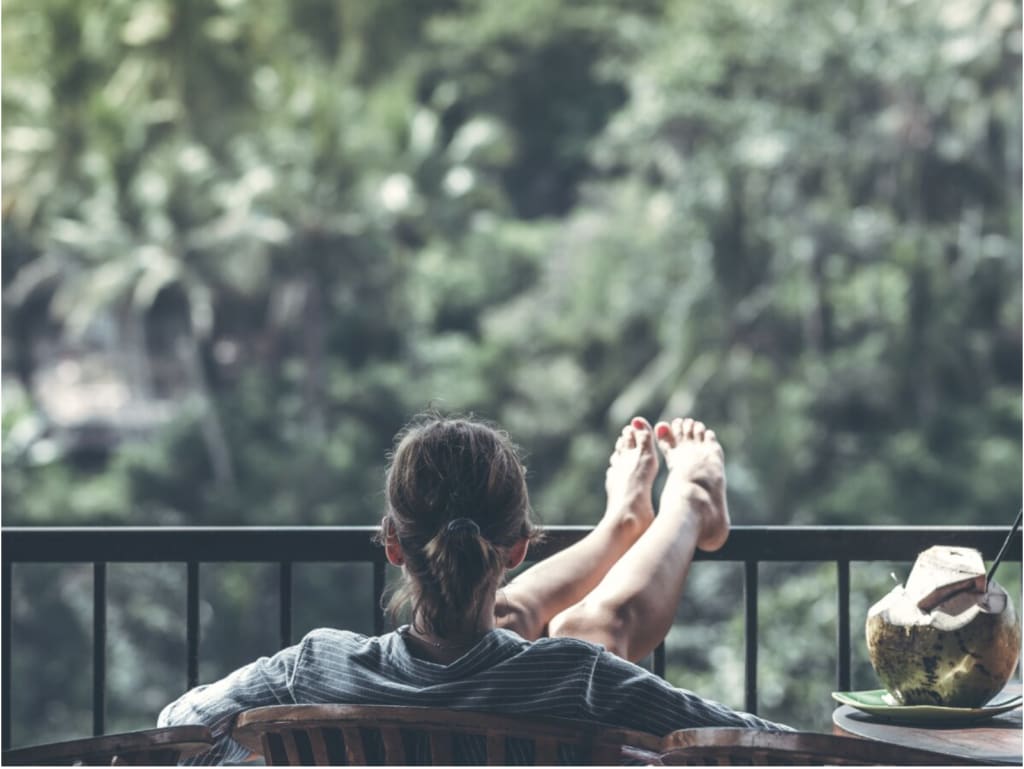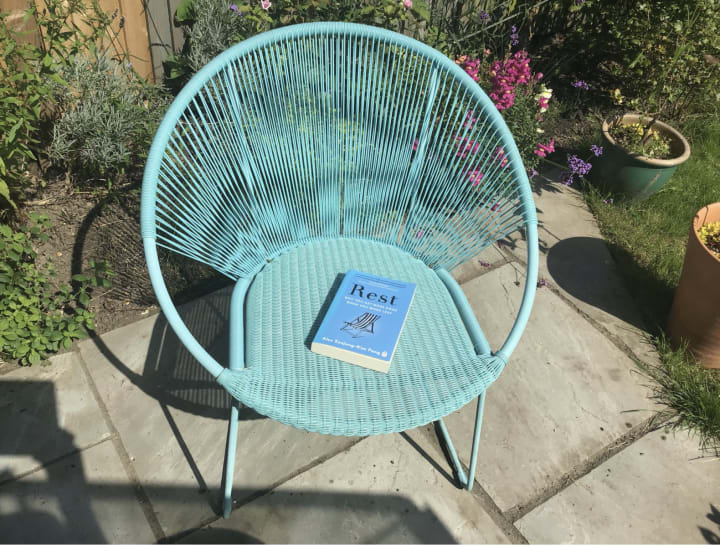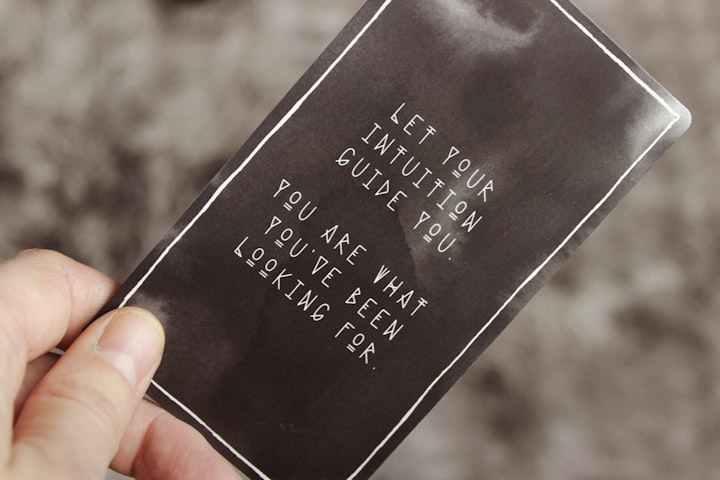Work less.. and get more done?
It's counter-intuitive, but scientifically proven. You get more done if you take a break.

Work, work, work. Busy, busy, busy.
Push on through if you want to get ahead, because we’re 24-hour party people. Relaxation is for wimps. And anyway, you can sleep when you die.
We’ve all taken this on board, to some degree or other. The myth of the Silicon Valley entrepeneurs who work day and night, bathed in the blue light of a computer screen. The world leaders who get by on four hours of sleep and the business moguls who are in the office at 6am, having already completed a long run or gym workout. The parents who are there for their children at the school gates, have a high-powered career and still somehow run a side-business, write novels in their ‘spare’ time and produce lavish cakes for the school fete at a moment’s notice.
None of these stereotypes actually exist, of course. And if they do, they’re heading for a heart attack with their frantic, unsustainable lives. But somehow this constant, superhuman busyness has become the ideal many of us feel we need to measure ourselves by.
What if there was a better way?
In his book Rest, Alex Soojung-Kim Pang delves into the latest scientific research and into the lives of great writers, thinkers and creatives to make the case that less can actually be more.
He argues that we’d all work better and achieve more with shorter bursts of concentrated work, interspersed with exercise, naps and absorbing leisure activities, and supported by a good night’s sleep.
The book is well worth reading in full, with ideas backed up with solid research and great anecdotes. But here are my main take-aways:
1. Four hours of deep, concentrated work is enough.
Charles Darwin would take a morning walk before breakfast, then be in his study by 8.30am for a steady 90 minutes work, before breaking off to read his mail and write letters. By 10am he was back at work, often moving to his aviary, greenhouse, or other areas in which he had set up experiments. At noon the main work of the day was done, and he’d set off on another long walk, then eat lunch and deal with his mail. At 3pm there was a nap, another stroll, then he’d go back to his study till 5.30pm. He’d then join his wife and children for dinner.
That’s a working day of three 90-minute bursts with solitary exercise and thinking time in between. Yet somehow Darwin wrote 19 books including The Descent of Man and On The Origin of Species, changing the course of science forever.
Anthony Trollope started his day at 5am when a servant woke him with coffee. He would read through the previous day’s work, then at 5.30am he would start writing, at a rate of some 1000 words an hour, until 8am, when he would leave to work at the Post Office. ‘Three hours a day,’ he declared, ‘will produce as much as a man ought to write.’
He died at the age of 67, having written 47 books. In his day job, he also changed the landscape of British streets by launching the first pillar-style post boxes.
Charles Dickens also wrote his later novels in a strict routine, working in his study from 9am-2pm with a break for lunch. He’d then finish writing for the day — often setting off on a 10-mile walk. Stephen King’s writing routine is fairly similar (although with the addition of loud rock music while writing).
A working day of 3–5 hours seems to be the ideal. But we also need to be consistent for this to be truly effective. We also need to build in deliberate rest periods, plus time for exercise and plenty of sleep.
2. Routine is crucial.
We live in a time of endless choice, with so many options open to us that it can become paralysing. Routine takes the choice out of creating. You get up, you do whatever you need to do to get your mind primed, and then you get to work.
Whether you want to be a great writer, an Olympic athlete, a brilliant musician, a rigid routine will support you — and, paradoxically, give you freedom. You train your brain, your body, to expect to do the work at certain times, without procrastinating or overthinking it.
Then, once your work is done, there’s time to rest, to play — to have a life. Which is the whole point of being alive, after all.

3. If in doubt, walk it out.
Exercise is not just beneficial but essential to be at your best, whatever work you do. Walking seems to stimulate the unconscious brain to find solutions, and is a great tonic between bursts of concentrated work.
Next time you’re stuck, and feel tempted to just push on through, try going for a walk instead. Outside is best, but a treadmill works too. And it may be that when you get back to work, the answer is there.
4. Naps are wonderful; but sleep is essential.
Winston Churchill took a daily nap, as did JFK and his successor to the US presidency, Lyndon Johnson. Writers from JR Tolkien and Ray Bradbury to Jonathan Franzen and William Gibson have all sung the praises of a brief lie-down after lunch. As have great architects such as Oscar Niemeyer or Frank Lloyd Wright.
The evidence is now compelling enough for some companies to have nap rooms, or pods where employees can snatch a quick snooze.
I’ve always struggled with getting to sleep, but napping is a skill that can be learned, apparently. Check out apps like Pzizz to help you relax into it, and wake up refreshed. I still don’t drift off, but 30 minutes lying down, listening to a guided meditation, can work wonders.
As for sleep, lack of it erodes reflexes, decision-making and your ability to learn. It makes you more likely to be overweight, and may make dementia more likely in old age. We heal when we sleep. Our brains consolidate memories. Physically and mentally, we cannot be at our best if we are constantly sleep-deprived.
Sleep is not for wimps, after all. It’s for people who want to lead healthy, happy, creative and productive lives.
5. Work hard, play harder!
When the work is over, you need other distractions. The great physicist Richard Feynman famously played the bongos in his down-time, and a surprising number of successful scientists enjoy mountain climbing, precisely because it requires such intense mental focus.
Having an absorbing hobby — or ‘deep play’, as Soojung-Kim Pang calls it — is an important way to rest and refresh. It may even help you solve problems subconsciously. (Quick note: surfing the internet, or box-set bingeing, does not count.)
Holidays, and even longer sabbaticals taken off work to travel, learn and grow can also help you stay at the top of your game, giving new ideas time and space to percolate. Plus: they’re a lot of fun.
6. It helps to have a wife and servants.
What struck me reading the examples of great scientists, artists, writers and thought leaders, is how rarely everyday chores seemed to intrude into their creative lives.
Darwin could go for a walk before breakfast then take another solitary stroll before and after lunch because other people shopped for those meals, prepared them and cleared away afterwards — as well as caring for his seven children.
Trollope had his faithful servant Ned to wake him with coffee (and presumably go out and buy it, too). Indeed, few of the high-achieving nappers above had to change their own bedlinen. Or get up in the middle of the night to feed a bawling baby.
So how can we adapt this?
Clearly, not all of us can afford staff. But we can carve out space for essential rest, exercise and creative work by spending less time staring at our phones and TV. Or by collaborating with other family members. (Perhaps your partner can get the kids ready for school while you get clear time to write in the mornings. Then you can handle bath and bedtime so he has some concentrated time to paint?)
If you can afford it, it’s worth outsourcing at least some of the essential but time-sucking stuff you hate. Get an ironing service or a cleaner. Do your regular supermarket shop online, and get it delivered. Or just accept that your home won’t always be perfectly tidy. And that an occasional quick meal of oven chips and fish fingers does no real harm.
If you pace your day well, you might find you can simply get more done, in less time. And that resting makes you far more productive than a life that is all work and no play.
About the Creator
Sheryl Garratt
Sheryl Garratt is a former editor of The Face and Observer magazines, and has written professionally for more than 30 years. She is also a coach working with creatives of all kinds. Find her at thecreativelife.net






Comments
There are no comments for this story
Be the first to respond and start the conversation.